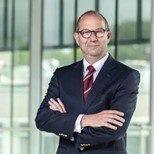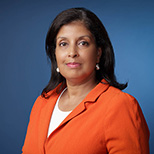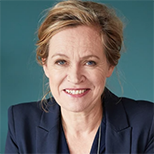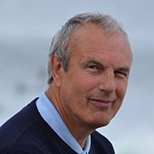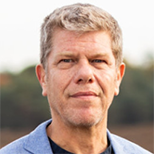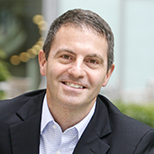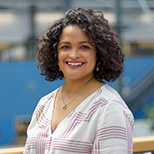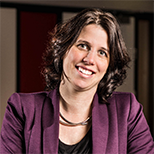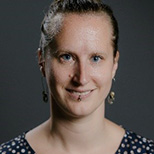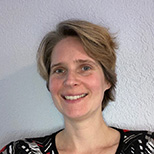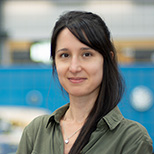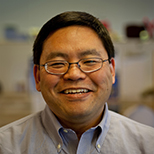LEARNING FOR LIFE SYMPOSIUM - 4 APRIL 2024
10-year anniversary of the TU Delft Extension School for Continuing Education
The discourse around the provision of Lifelong Learning (LLL) continues to grow in importance and involves governments, educational institutions, and companies.
It focusses in particular on how such educational offerings can help bridge the skill gaps in the labour market, supporting employability and facilitating access to critical job sectors, such as those linked to our societies transitioning to more sustainable, affordable and equitable practices.
On 4 April 2024, the TU Delft Extension School for Continuing Education celebrates 10 years since its foundation. A decade dedicated to furthering the University’s commitment to the provision of post-initial education in science, design, and engineering to interested learners and working professionals worldwide.
It is an exciting time to reflect on what Learning for Life means now and for the future. To explore together how it can best serve professionals and what challenges and opportunities face educational institutions and their partners in industry and society.
Let’s discuss the way forward!
Programme
-
- Opening by Professor Rob Mudde – Vice-rector Magnificus and Vice-president Education TU Delft
- Minister Mariëlle Paul will talk about current government policy and its focus on Lifelong Learning
- 'How it all began' address by Anka Mulder – President of the Executive Board of the Saxion University of Applied Sciences
- Keynote: 'Learning for Our Life and a More Sustainable Future' by Professor Norman Jackson – Emeritus Professor at the University of Surrey
Keynote: Learning for Our Life and a More Sustainable Future
The challenge for all educational systems and institutions within them, is to co-create new lifelong learning ecosystems whose purpose is to serve more distant futures, as well as the needs of the present. Learning as a competence for living draws attention to the fundamentally ecological nature of our existence – we are interbeings, deeply connected to and interdependent on the world around us. At this critical junction in human history, education and educators have an important role to play in helping people develop in ways that not only fulfil present personal, economic, and societal needs but also ensure that they contribute to a sustainable future beyond their own existence. See presentation slides and narrative.
Short pause before the start of the breakout sessions.
-
Session 1a: ‘AI in learning: Can machine learning help human learning?’ – Prof. Felienne Hermans
Generative AI was ‘the’ hype of 2023, and it is here to stay. Education is named as one of the first domains with the potential to be ‘disrupted’ by a new technology, promising to support learners and teachers alike, inside and outside of school systems. But how does AI work? And what is teaching and learning? The session explores the history of machine-supported learning, outlines what modern machine-learning techniques can and can’t do, and illustrates Herman’s vision for the future of learning. Download slides.
Session 1b: 'Learning Communities to power innovation' – Prof. Maaike Endedijk and Amber Kornet
Learning Communities bring together knowledge institutions, companies and public organizations to stimulate the integration of learning, innovation, and collaboration to ultimately contribute to the grand challenges of our times. However, creating a collective commitment to define and actively pursue a shared agenda is a main challenge in itself. In this interactive section, Prof. Endedijk and researcher Amber Kornet take away some misconceptions about learning communities, present an integrative framework to set these up to power innovation and lifelong learning and share tips and tricks to tackle common challenges. Download slides.
Session 1c: 'Open Education and Lifelong Learning' – Prof. Christopher Capozzola and Brandon Muramatsu
If in 2024 we started developing lifelong learning opportunities that are open and widely accessible, what might they look like? Since the TU Delft Extension School and MIT OpenCourseWare started – 10 and 23 years ago respectively, we live in a different world: open education has grown into a worldwide movement, and residential and LLL have been transformed by technological innovations and a global pandemic. There continues to be great potential – and need – for open, accessible learning at scale. This interactive session identifies key lessons learned, opportunities for the design of new programmes, and next-generation challenges.
-
Session 2a: 'How to recognise blind spots in yourself and others, when integrating knowledge from different perspectives?' – Prof. David Abbink
How to shape the future of physical work involving robotics? This interactive lecture engages the audience in understanding what needs to be learned when aiming to integrate knowledge from academics and innovators (roboticists, designers, psychologists, organisational scholars) with pragmatic and experiential knowledge from workers. Abbink will leverage insights from three years of experience in transdisciplinary research and education, obtained through robot-assistance projects with nurses, baggage handlers, and engine repair experts.
Session 2b:'Developing a lifelong learning portfolio for impact through the Theory of Change' – Niek Bakker
How can educational institutes contribute to sustainable social change? And can the Theory of Change be a valuable instrument for that endeavour? This interactive workshop
-
researches the key conditions for effective learning programs that stimulate learners to take innovative actions and become change facilitators in their field of expertise;
-
identifies core outcomes of learning programs that enable learners to engage in societal change, enhancing the impact of their professional work.
Session 2c: 'Agile course development: Truth or trend?' – Tracey-Lee Davis and Patricia Mancebo May
Does Agile decrease course development time? Does this approach result in high quality learning design? This workshop explores some answers to these questions through practical activities and creative conversations. You will be introduced to some basic agile principles and discover how and where some of these principles could fit into your design and development processes. Download slides.
-
-
Emergence Delft is a student team that uses interactive art installations to provide more interpretation and explanation of the impact of new, modern, emerging technology. It comprises 24 TU Delft students and 12 from the Royal Academy of Art in The Hague.
-
-
Session slides
Please find links to download the slides next to each session.
Expand the programme list to visualise the list of sessions.
Guest speakers
Prof. Rob F. Mudde
Vice-rector Magnificus and Vice-president Education Delft University of Technology
-
Vice–rector Magnificus and Vice–president Education in the Executive Board of the Delft University of Technology since 1 March 2018. He is Professor of Multiphase Flow and a Distinguished Professor of Science Education. He joined the Executive Board of KIVI on 1 July 2020. Mudde has a long track record at TU Delft having filled various scientific and managerial positions with the university since 1988. Until his appointment as Vice–Rector Magnificus/Vice-President, he was interim chairman of the Imaging Physics department at the Faculty of Applied Sciences and headed the TU Delft Teaching Academy and the Teaching Lab.
Full profile
Mariëlle Paul
Minister for Primary and Secondary Education
-
Minister for Primary and Secondary Education with adult education and lifelong learning as part of the portfolio. Appointed in July 2023, she was previously a member of Parliament in the House of Representatives of the Netherlands (March 2021-July 2023): spokesperson for primary and secondary education & allowance recovery operation; chair of the permanent parliamentary committee on Kingdom Relations & chair of the temporary Corona committee.
Full profile (in Dutch)Portrait photo by Martijn Beekman
Anka Mulder
President of the Executive Board of the Saxion University of Applied Sciences
-
President of the Executive Board of the Saxion University of Applied Sciences since 1 January 2018. She is responsible for strategy, research and valorisation and has Twente as her area of focus. Mulder studied History at the University of Groningen. Mulder worked abroad for a number of years, joining the Delft University of Technology in 2003 where she was a member of the Executive Board from 2013 – 2017 and responsible for education and operational management. She is an international expert in the field of digital education and is considered to be one of the most influential people in the field of education in the Netherlands.
Full profile.
Prof. Norman Jackson
Emeritus Professor at the University of Surrey
-
Emeritus Professor at the University of Surrey and former Director of the Surrey Centre for Excellence in Professional Training and Education (SCEPTrE). He was a researcher, policy maker and educational developer for several UK higher educational agencies. In 2011, he founded the 'Lifewide Education' open access community which champions lifewide and ecological approaches to lifelong learning including higher education. Addressing the urgency for a sustainable future, he leads commmunity-based biodiversity projects and fosters collaborative, inquiry-based learning to infuse purpose and substance into these concepts.
Session presenters
Prof. David Abbink
Professor in Haptic Human-Robot Interaction at the Faculty of Mechanical Engineering at TU Delft
-
David Abbink – Full Professor in Human-Robot Interaction at TU Delft, working both in the Cognitive Robotics Department of the Faculty of Mechanical Engineering (ME), and in the Sustainable Design Engineering Department of the Faculty of Industrial Design Engineering. He leads the transdisciplinary research and innovation centre FRAIM, which aims to shape the future of physical work, with and for workers. At ME, David was voted best teacher of his department for seven consecutive years, best teacher of the faculty twice, and received an international Open Course Award for his course The Human Controller. In his vision, transdisciplinary education requires curiosity, reflection, and dedication to deal with blind spots, in others, in oneself, and collectively.
Full profile.
Niek Bakker
Creative Director at the Management for Development Foundation
-
Niek Bakker - Creative Director at MDFnl, the Management for Development Foundation, a worldwide operating training and consultancy firm. As an expert, Bakker has worked internationally in many (70+) countries on creating ‘Impact of Development’ programmes, inspired by a genuine responsibility towards society and by connecting personal and organisational values in the realisation of common goals. Since 2007, he has assisted numerous NGOs, care organizations, local governments and educational institutes, abroad and in the Netherlands, in developing impact strategies.
Full profile.
Prof. Christopher Capozzola
Senior Associate Dean for Open Learning at MIT
-
Christopher Capozzola – Professor of History at the Massachusetts Institute of Technology (MIT). In his role as Senior Associate Dean for Open Learning, he oversees MIT’s open education offerings including OpenCourseWare, MITx, and MicroMasters, as well as the Digital Credentials Consortium, the Digital Learning Lab, Digital Learning in Residential Education, and MIT Video Productions.
Full profile.
Tracey-Lee Davis
Learning developer at the TU Delft Extension School for Continuing Education
-
Tracey-Lee Davis – Learning developer at the TU Delft Extension School for Continuing Education, with a focus on guiding and advising course teams in the design and development of MOOCs and professional education courses. During her previous experience in learning and project leadership, she was involved in implementing non-traditional approaches toward the development of courses. Davis has hands-on knowledge of using Agile principles in a learning design environment and believes in being adaptable to get the best out of course teams.
Full profile.
Prof. Maaike Endedijk
Professor in Learning and Technology, University of Twente
-
Maaike Endedijk - Full Professor in Professional Learning & Technology and Head of the Professional Learning & Technology research group of the University of Twente. She studies self-directed professional learning in the context of technological innovations and societal transitions. Part of her research focuses on how learning, collaboration, and innovation processes can be supported in interorganizational learning communities. She is the scientific project leader of four Dutch Research Council (NWO) projects on learning communities: CLIC-IT; Power-up!; LIAT; and gas erop! for which she developed the challenge-based method for learning communities.
Full profile.Co-speaker Amber Kornet (Saxion University of Applied Sciences), works as a researcher on various learning community projects and developed several interventions to support learning and innovation processes in challenge-based learning communities.
Prof. Felienne Hermans
Professor of Computer Science Education at the Vrije Universiteit Amsterdam
-
Felienne Hermans – Full Professor of Computer Science Education at the Vrije Universiteit Amsterdam. She also works as a high-school CS teacher one day a week at Lyceum Kralingen in the Codasium programme. She is fascinated by the question of how we can teach everyone to program and created Hedy, a gradual and multi-lingual programming language designed for teaching.
Full profile.
Amber Kornet
Researcher at Saxion University of Applied Sciences
-
Amber Kornet – is a PhD Candidate at the University of Twente, and works for Saxion University of Applied Sciences as researcher. She focuses her research on Employability Transitions, and works on the governmentally-funded project Hit the Gas - learning communities to accelerate innovation in the installation section.
Full profile.
Patricia Mancebo May
Learning Developer at the TU Delft Extension School for Continuing Education
-
Patricia Mancebo May – Process Manager Course Development and Learning Developer at the TU Delft Extension School for Continuing Education. She oversees the Online Course Development Process and advises teams on the design of MOOCs and other professional education courses to ensure these continue to meet users’ needs. In previous roles, she worked with an Agile approach incorporating design-thinking methodologies in daily tasks and promoting transformation and innovation in education.
Full profile.
Brandon Muramatsu
Associate Director Special Projects at Massachusetts Institute of Technology (MIT)
-
Brandon Muramatsu – Associate Director Special Projects at Massachusetts Institute of Technology (MIT) where he leads the design and implementation of local, national and international strategic education initiatives for MIT Open Learning. He works at the intersection of learning, technology, innovation and scale, with a special focus on open education, including the establishment of a STEAM high school utilizing open educational resources and project based learning. He earned his B.S. (1993) and M.S. (1995) in Mechanical Engineering from the University fo California, Berkeley.
Full profile.

